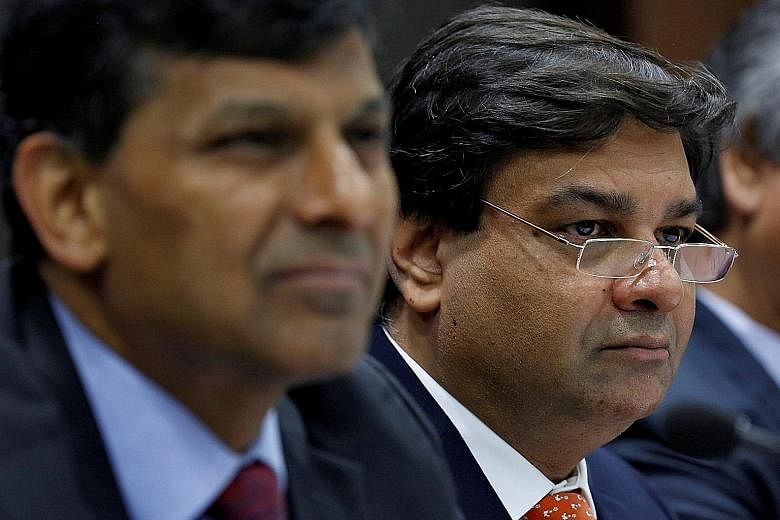India's incoming central bank chief Urjit Patel likes to keep a low profile, in complete contrast to outgoing governor Raghuram Rajan, an outspoken and high-profile technocrat who often got on the wrong side of the government.
Still, Dr Patel is known to be quite vocal on monetary policy and has worked closely with Dr Rajan, which, experts and policy watchers say, would ensure the continuity of most policies at the Reserve Bank of India (RBI).
Last Saturday, the Indian government named Dr Patel, 52, as the next central bank chief after Dr Rajan leaves on Sept 4.
Dr Patel has been one of four deputy governors at the central bank since 2013, working closely with Dr Rajan to keep a tight rein on inflation and clean up the banking sector. Those who know Dr Patel describe him as a hard worker who prefers to keep his head down and work.
"He has kept a low-profile existence as deputy governor for three years and this is how he will continue. He will not hit the headlines every other day. He is a team player and someone who does due diligence," said Dr Sanjaya Baru, a former newspaper editor and former premier Manmohan Singh's media adviser from 2004 to 2008. "I don't think there is a major difference of approach intellectually (between Patel and Rajan). As far as policy is concerned, I expect continuity."
Dr Baru said the Yale-trained economist had been on the radar of Dr Singh, who wanted him to join the Prime Minister's Office as an economic adviser in 2008, though that did not work out.
Still, Dr Patel's latest appointment came after much controversy and intense media speculation over Dr Rajan's shock announcement in June that he was stepping down and returning to academia.
Dr Rajan, 53, has a huge following in India and is often referred to as a "rock star" governor. But he came under a series of attacks by Bharatiya Janata Party leader Subramanian Swamy, who accused him of trying to "wreck the Indian economy" and for not being "Indian enough" as he has kept his American green card.
He also caused ripples in the corridors of power with his outspokenness, including warning against intolerance, saying it could impact growth at a time when Prime Minister Narendra Modi's government was under fire for failing to rein in right-wing groups.
While Dr Patel's low-key style is expected to better suit the Modi government, experts believe that he will continue to be bullish on fighting inflation and that his appointment will assure foreign investors spooked by Dr Rajan's exit.
His challenges include cleaning up bad bank assets and setting up a monetary policy committee.
"His appointment makes sense. He is somebody who has been with the system and is part of creating the basic monetary policy," said Mr Madan Sabnavis, chief economist at Care Ratings.
Like Dr Rajan, Dr Patel has also worked at the International Monetary Fund. He has also had stints at the Boston Consulting Group, Brookings Institution and Reliance Industries, an Indian energy conglomerate.
He has gained both private and public sector experience working as a consultant to the Indian Ministry of Finance between 1998 and 2001 and being on multiple government task forces.
He has a long association with India's central bank, dating back to 1997, when he first offered advice on the debt market and pension fund reforms, among other things.
Given his wealth of experience, his appointment has been widely welcomed by industry bodies and corporates, with the Confederation of Indian Industry noting it would "work closely with the government and the RBI to support the creation of a stable, low-inflation and high- growth economy".

